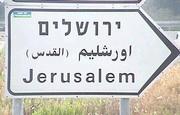Exodus
I finished Leon Uris's masterpiece* last week**, and I've wanted to say a bit about it. First, despite its being a novel, it is definitely, in my opinion, one of the pillars of Zionist ideology. It's pretty amazing how extensively he covers the historical background of Jews all over the world leading up to and through the creation of the State. It's just as fascinating how he manages to tie together the roles of characters from such diverse origins and mentalities in a way that is so vividly representative of reality in Israel, at least at the time when he was writing. I have some issues with his blanket dismissive treatment of religious Jews there, and with some inaccuracies (or at least lack of appropriate qualifications) in his description of religious practices themselves, but I'll put those aside. From a purely nationalistic perspective, he captured practically every breath of those who built the country.
My biggest difficulty, however, as very much of an elementary student myself of Israeli history, is with his seamless meshing of fact and fiction. See, I like historical fiction a lot, especially because I generally have very little patience or capacity for undiluted history, so I appreciate the "feel" of a certain time period or of a certain sequence of events that this type of literature provides. It doesn't usually trouble me that not everything stated in such a story happened exactly as described, because if I were to have read a documented account of the actual facts, my understanding and recollection of them later wouldn't give me much more accurate a picture than my clearer memory of fuzzier reality. (Got that?)
Anyway, I have a hangup with Israeli history. I don't necessarily retain much more of what I learn of it than I do of any other topic in the field, but that only frustrates me because of my interest. So when I read a book like Exodus, I find it incredibly aggravating to recognize many of the events as fact, knowing that obviously someone other than the book's fictional character played their key role in the event, but not knowing who it was. It's made even worse because Uris intermingles descriptions of such events in his narrative with accounts of purely imaginary occurences and with reports of other episodes that are fully accurate as to participants, location, etc.
I'm not sure this is a criticism of Uris's technique. I don't know that there's any solution to this problem besides somehow forcing the factual material into my brain and tying it there. (If you know the secret, let me in!) And I wouldn't want to give up the genre, even in the context of Israel and Judaism. But gee, it's annoying...
*I do not mean to imply by calling it a masterpiece that it is necessarily his best work, or that I would want to pass judgment on that question. I have read only one of his other books, Mila 18, which was extremely powerful, and I plan to read more. I just mean that it is A masterpiece.
**This is actually the second time I've read it, but the first was before I was mature enough, educated enough and interested enough in the related history to appreciate it properly.
(Posted on Pacific time)


1 Comments:
BS"D
Hear! HEAR!!
I echo your thoughts on Exodus, except that, I am embarrassed to admit, when I first read it, my Hebrew wasn't so good. So all these yishuvim called "Eyn Hod" & "Eyn Whatever", I thought meant "There Ain't No Glory", etc as opposed to "Fountain of Glory". I was spelling the Hebrew wrong in my head, which I scratched repeatedly, wondering why Jews would walk their feet down to the nub to get from Soviet Russia to THE LAND, only to call their new homes "No Good Stuff Here".
Anyway, I'm just thrilled to finally be able to load your blog! YAY!! I WIN!!!
Post a Comment
<< Home